No products in the cart.

Anchoring for your Westie Soul: 20 Morsels of Wisdom to Get You Through the Holidays
Reading Time: minutes remaining
Hey. You look a little stressed… a little adrift. Maybe it’s time we sat down and had a chat. Pull up a comfy chair, order your favourite hot beverage, and get cozy. Let’s get you feeling anchored.
This time of year can be emotionally draining, even pulverizing for some. While I don’t claim to be an expert in psychology or mental health, I do have a lifetime of experience in navigating the complexities of the dance community. I have done my fair share of personal growth work, and my mentorship and coaching often extends beyond the body and into the mind and soul. I’d like to pass on some sisterly words of wisdom to bolster your confidence and keep things in a healthy perspective.
Some of these lessons are personal ones I have learned along the way. Some are inspired by students or friends we have observed or mentored. Hopefully some things will be useful to you, as revelations or reminders. In any case, pass it on to spread the love and support.
*This is by no means a complete list.
**If someone is threatening you or if you are feeling overwhelmed and unable to help yourself, please reach out for support: see the end of this article for links.
1. Recognize your facets
Imagine you are a diamond with several facets. Each facet aligns with a certain part of your life: You show your professional facet at work, your comedian facet with friends, and your romantic facet in your relationship. Just as it is inappropriate to use your romantic facet at work, it would also be dysfunctional to use your professional facet when relaxing with friends.
Everyone behaves differently in different situations, but it doesn’t mean they are not being “authentic” or “real”. It is totally okay and expected to turn your diamond like a combination lock so that the appropriate facet of you lines up with the circumstance you are in. Never be ashamed of all of your unique facets, as long as they are functional and not destructive to yourself or others. Be conscious of each environment you are in and intentionally turn your facet appropriately.
Also remember that just because one of your facets might need work (help/improvement/training etc) doesn’t mean that the rest of you is broken. You are a whole, complete, and perfect work in progress.

2. Reassess your core values
It’s hard to know exactly what to do and say in every situation. But if you have a set of core values or guiding principles, and align everything in your life around them, these can make the decision making process much more efficient and confident.
For example, if you value integrity and showing up on time, you will automatically book flights, make private lesson appointments, register for contests, and show up for birthday parties giving yourself enough time to be able to satisfy that value. Your values set the internal ground rules for your decision making.
Once you determine your core values, you will find it easier to set your priorities, make decisions, and establish boundaries. It's possible you've already done this, but it has been so long since you did that your life looks and feels different now, so it's time to reassess.
Here are a few other example values you might choose:
- Being accepting
- Listening before speaking
- Being of service
- Being honest
- Thinking critically
- Being uplifting to others
- Making people laugh
- Taking leadership
- Challenging the status quo
- Defending others
- Making others feel included
3. Surround yourself with positive people
This sounds like something your parents taught you, but it is timeless advice. If your “friends” are bringing you down in any way, don’t be afraid to reassess your friend inventory and make some positive changes.
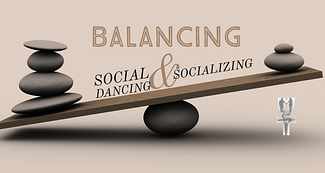
You don’t have to ditch all your friends, but maybe widen your friend pool and start spending time with some super-positive people in order to gain more balance. Keep in mind that positive people come in a diverse range of options: they may not be the same age, division, culture, or sexuality as you. Enjoy what each and every person has to offer. While Myles and I enjoy spending quality time with our usual circle of friends, we cherish meeting new people and are fascinated by the souls we meet that we connect with despite being so different in age or lifestyle.
Make yourself available for social opportunities where you can be authentic and get to know people for more than 3 minutes at a time. Here’s an article on this topic you might have missed: Balancing Social Dancing and Socializing
4. Getting a sense of belonging
Feeling isolated? Unsure what is expected of you? Carving out your niche? Notice the culture of the WCS: the clothing, the behaviour, the attitude, the code of conduct. Rather than making wild guesses about how to conduct yourself, pay attention to the environment you are in and what others are doing/saying/appearing. This does not mean you should always try to fit in! But being aware of cultural expectations is a crucial step in making an educated decision on how you want to be and how to belong.

If you want to (for example) wear a hat for competition, look around and notice that nobody else is wearing a hat, take a minute to consider why not. There’s usually a good reason. Then if you decide you still want to wear a hat, at least it will be because you made a conscious decision to match your environment or to stand out. Keep in mind that standing out may have consequences (I use this term neutrally, with neither positive nor negative intention), for better or worse. Notice other more potent social norms such as etiquette and consent: behavioural norms like these are not so flexible or forgiving, so pay attention.
5. Engage in self-reflection
This can take many forms: journalling, quiet time, meditation, mindfulness training, inspirational reading, etc. But consider that you could use some guidance and training in this department, just as you would train any other skill. Also consider experiential personal growth opportunities: one that we can recommend is the Landmark Forum.
6. Get feedback
Self-reflection is an invaluable form of feedback, but it only tells half of the story: you need feedback from an external source in order to clarify the impact you are having on those around you.
This is not just referring to watching yourself dance on video – it also applies to social behaviour. It is possible that your best intentions are actually backfiring, but without external feedback, you might continue damaging your dancing, your relationships or your personal reputation. Failure is feedback, and deserves to be analyzed without judgement. Check out this powerful article: Dancing With a Growth Mindset
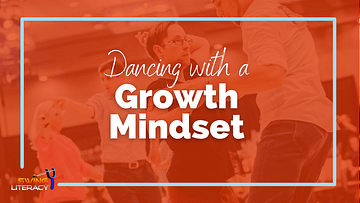
7. Take a break
This doesn’t mean that you have to stop going to dance for a while. Taking a break could take a variety of forms – it could mean sitting in a different corner of the ballroom and meeting fresh faces. It could mean changing up your weekend routine and actually going to the workshops instead of sleeping in. It could mean taking a private with a different instructor, or maybe in a totally different dance style. Giving yourself some space from your habits gives you a chance to gain perspective and reassess.
8. Curate your social media
Everyone uses social media for different purposes. If you decide that you really want your Facebook and Instagram to be full of food/recipes and funny cat videos, that’s your prerogative.
But keep in mind that others will make up their own minds about you based on the content you share. It’s just a fact. So if you are trying to build/maintain/fix your reputation, consider what you share online, how, and with whom. Are the facets of yourself that you share online in alignment with the facet(s) you want to apply to the dance community?
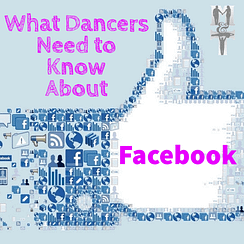
For example, I use social media for business, promotion, education, and inspiration. I never post funny cat videos. Not because I don’t enjoy them (because I actually really do), just because it’s not what I use social media for. I never post political or religious content. Not because I disagree with it: just because it’s not the facet of my life I want to share with the dance community. There is no need to “preach” or “proclaim” your way of being in person or on social media. Just BE. For a more complete picture of social media advice for dancers, check out What Dancers Need to Know About Facebook.
9. Discover your “why”
This is a giant, glorious topic, and I encourage further study: here’s a great TED talk: Start With Why. But right now, let’s focus. When you are feeling frustrated or overwhelmed and nothing seems to be clicking, or you seem to have more bad dance nights than good ones, think about WHY you started dancing (or teaching) in the first place. Maybe you did it to meet people, maybe to challenge yourself, maybe to be in the spotlight. Be honest with yourself, because you don’t have to tell anyone your real reasons. Then ask yourself if those reasons still exist, or if they have morphed into different ones. It’s ok to have ever-evolving goals. But if your reasons for “why” you dance no longer exist, you might find yourself slowly losing motivation and fulfilment. Then it’s time to reassess and make some changes.
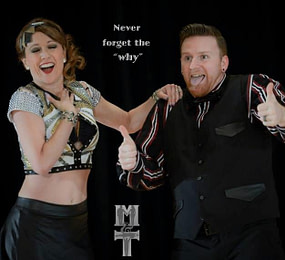
10. Separate your results from your self
If you compete, you are probably juggling the added stress of competition results. Remember that judges are judging only your dancing and only IN THE MOMENT, not your worth as a dancer in general or as a whole person.
Repeat after me: “My scores are not a reflection of me”.
There are so many variables in a dance contest, you really can’t attribute your results to your dance skills alone. Never use your comp results as a measure of your skills progress, and don’t collapse your comp results into your self-worth. This a fickle, toxic habit. For more on this topic, please see the article, Are You Winning Yet?
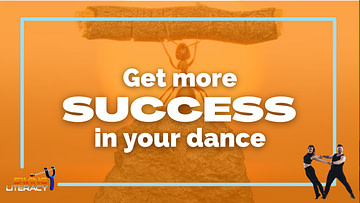
11. Reflect on your triggers
Whenever you are upset about something, try to step outside of your upset and ask yourself “why is this triggering me?” More often than not, the upset is not caused by something in front of you, but rather something in the past that you are reminded of or still holding on to.
For example, when someone says “We need to talk”, they might be referring to something benign, but my mind instantly switches into panic mode, because I have had experiences where those words have been followed by a breakup, a firing, or a tragic announcement. If you can identify your trigger as being separate from the current person/circumstance you are dealing with, it usually takes the energy out of it and you can manage your reaction more calmly and accurately.
12. Decide on your boundaries
This is such a huge and vague topic, but deserves to be mentioned. You discover your boundaries by testing them, which can be an awkward process. You know your boundaries are being pushed when you feel uncomfortable.

I’m not talking about “pushing your limits” and other positive motivational encouragement. I’m talking about finding yourself in situations that are negative (for you). These can involve circumstances that involve your body (an acquaintance starts giving you a neck rub), your living conditions (who, if anyone, you are willing to room with), your conversations (someone in a group setting starts making racist remarks), situations (you realize you are getting ripped off by a service provider), or demands placed on you (a friend asks you for a favour you don’t have time for). If you are a non-confrontational person in general, these can be very hard to manage and you can be very easily manipulated or taken advantage of.
Recognizing these circumstances is half the battle: next, you might consider asking a mentor or friend how they would handle it, and maybe do some reading on your own. A book that we have found SUPER helpful is The Assertiveness Workbook by Randy J. Paterson.
Remember, your boundaries will not necessarily be the same as your friend’s. Be sure to pay attention when they are feeling uncomfortable and respect their right to set their own boundaries.
13. Take pride in and ownership of your body
Consent is a massive topic that is finally getting the attention in the dance world that it deserves. What this means for you in a nutshell: no one makes decisions for your body except you. You are perfect exactly as you are. You do not owe anyone anything with your body. You do owe others physical respect which includes personal space and safety from injury. A dance invitation is ONLY for dancing. Coaches, higher level dancers, and partners do not have the right to demand anything from you. When/if things get awkward, speak up, be honest, and try to be accompanied by others.
14. Be gentle with yourself
Negative self-talk is like a slow, creeping cancer. It may seem insignificant at first but if you indulge and let it continue and dominate, it becomes a disease. No one is a saint, and even while you are genuinely doing your best, you are bound to make mistakes or have a lapse in judgement and feel guilty about it. That feeling is just a signal that you are human; you might have some cleaning up to do with certain people. But it shouldn’t be a permanent thing if you address it and manage it.
While you’re at it, be gentle with others – realize their humanity and give them a chance to reflect and make reparations. Now go back and read this paragraph in the context of a social dance.
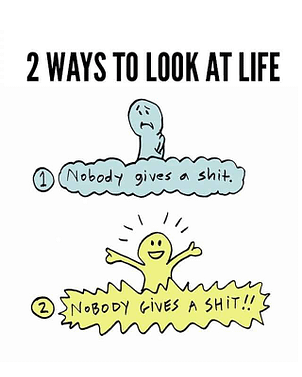
15. Own your mistakes, appreciate the contrast, and move forward
We all have made our share of bad decisions. You can’t un-pick the fruit, but you can grow more in its place. The best recovery from mistakes is owning up to them and making changes so that they don’t happen again. Not all mistakes need to be public. Best to get a mentor’s advice on how to manage PR if necessary.
I personally firmly believe that mistakes are useful because they show us contrast between the way things are and the way we want things to be. Just like that person you dated in college – we need this contrast in order to “browse” for the things we really want. So be grateful for contrast in your life – this shows us more clearly and confidently what we are really aiming for. Then use this clarity to fuel your efforts towards it, which will heal the wound and redeem it more quickly.
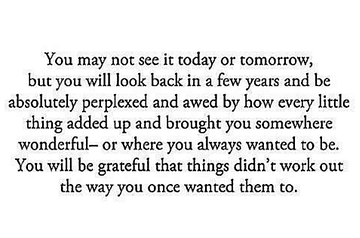
16. Think before you speak or act
This is so hard! Don’t worry we know! But it is worth trying. Imagine if you took your words and wrote them down as a script for an actor to read. How would they sound? If they make you cringe, edit!!! Think about your actions from others’ perspectives. Your actions might seem fine to you because you know your internal reasons. But to others who don’t know, your actions might be grossly misinterpreted.
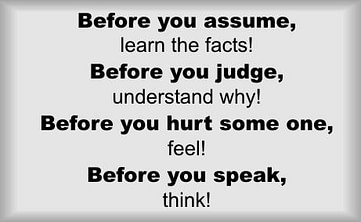
This starts rumours, and people tend to judge based on others’ impressions and advice. You can’t control how others think, but you can control how you present yourself, which can go along way towards being understood and preventing misunderstanding. Here’s a glimpse into how your dance actions can be misinterpreted: What Your Partnering Skills Say About You.
On the flip side, don’t be tempted to spread toxicity. If you hear a rumour, for Pete’s sake shut it down! Learn to identify facts from opinions, and if you hear people spreading theories and opinions as though they are facts, stand up and say something, or at least report it to the person involved so they have a chance to defend themselves.
17. All relationships have consequences
By consequences, I mean positive, negative, and neutral. All relationships (partners, romantic, professional, friendship, etc) will have an impact on you in some way. Keep this in mind when you enter into a relationship and when you decide to end one. Be sure to carefully negotiate your expectations so they match they other person’s. When expectations don’t match, disappointment surely follows.
When you decide to end a relationship, personal or professional, keep in mind the word “grace” as a guiding theme, so all your communication is respectful, productive, and not destructive. Use your discretion, and share the gory details only with those who are on a need-to-know level.
18. It is what it is
I used to think this phrase was a bit of a cop-out: a lame excuse for submitting to the status quo and not standing up for yourself. But observations of several respectable, upstanding, assertive friends using it caused me to reevaluate. “It is what it is”, is just another way of saying “I accept that I no longer or never really had control over X, and I am deciding not to make any meaning out of it nor spend energy on it.” It actually is an empowering and freeing statement, not a defeatist one. You alone are in control over what upsets you.
19. This too shall pass
You have the opportunity every single day to decide how your life goes. Never underestimate this power. You always have the choice how to interpret, handle, and remember events that happen to you. Every disappointment will fade and be replaced by more positive experiences. This doesn’t diminish the pain or the magnitude of the problem, but knowing that time will do a lot of the healing work for you is a big relief. Not all of the work, though – you still might need help in managing and there’s no shame in reaching out for help. Take care of the health of your heart and mind.
The 5 minute rule: This is a way of enduring temporary pain – if you can convince yourself that you can handle short term discomfort for just 5 minutes, it seems much more manageable and less daunting. Then when 5 minutes is up, just repeat the process – make a 5 minute plan for how you will survive. Repeat as necessary. You can adjust the timeline if you like – do what you need to do to endure one day at a time so you can stay focused on the present and not panicking about the undetermined future.
20. Let it Go/Choose Your Reaction
When you find yourself becoming aggravated by something, remember that while you are not in control of external circumstances, you ARE in control of how you react to them. Consider if getting upset will actually make things better or worse. Consider if holding on to this frustration will benefit you in any way, or be a detriment to the rest of your day or those around you. Consider if this issue is big enough to deserve your energy, time, and well being, and if it’s not, brush it off. You have better things to do and more important things to worry about.
Further Reading:
Tough Love for Dancers: https://www.swingliteracy.com/tough-love-read-at-your-own-risk/
Guidance for College-Aged Westies:https://www.swingliteracy.com/guidance-for-college-aged-dancers/
I Heart Intelligence (mindfulness blog): http://www.iheartintelligence.com
Science-based Meaningful Life Exercises: http://ggia.berkeley.edu
Headspace: a meditation app: http://www.headspace.com
Crisis Chat online: http://www.crisischat.org
Canadian Suicide Prevention: http://suicideprevention.ca/need-help/
US National Sexual Assault Hotline: http://www.rainn.org
Cyberbullying Prevention: http://cyberbullying.org/preventing-cyberbullying-adults
Like hearing coaching advice like this? You can get access to personalized WCS coaching programs that include these principles and more in a complete, comprehensive improvement program for your dancing. Check it out:
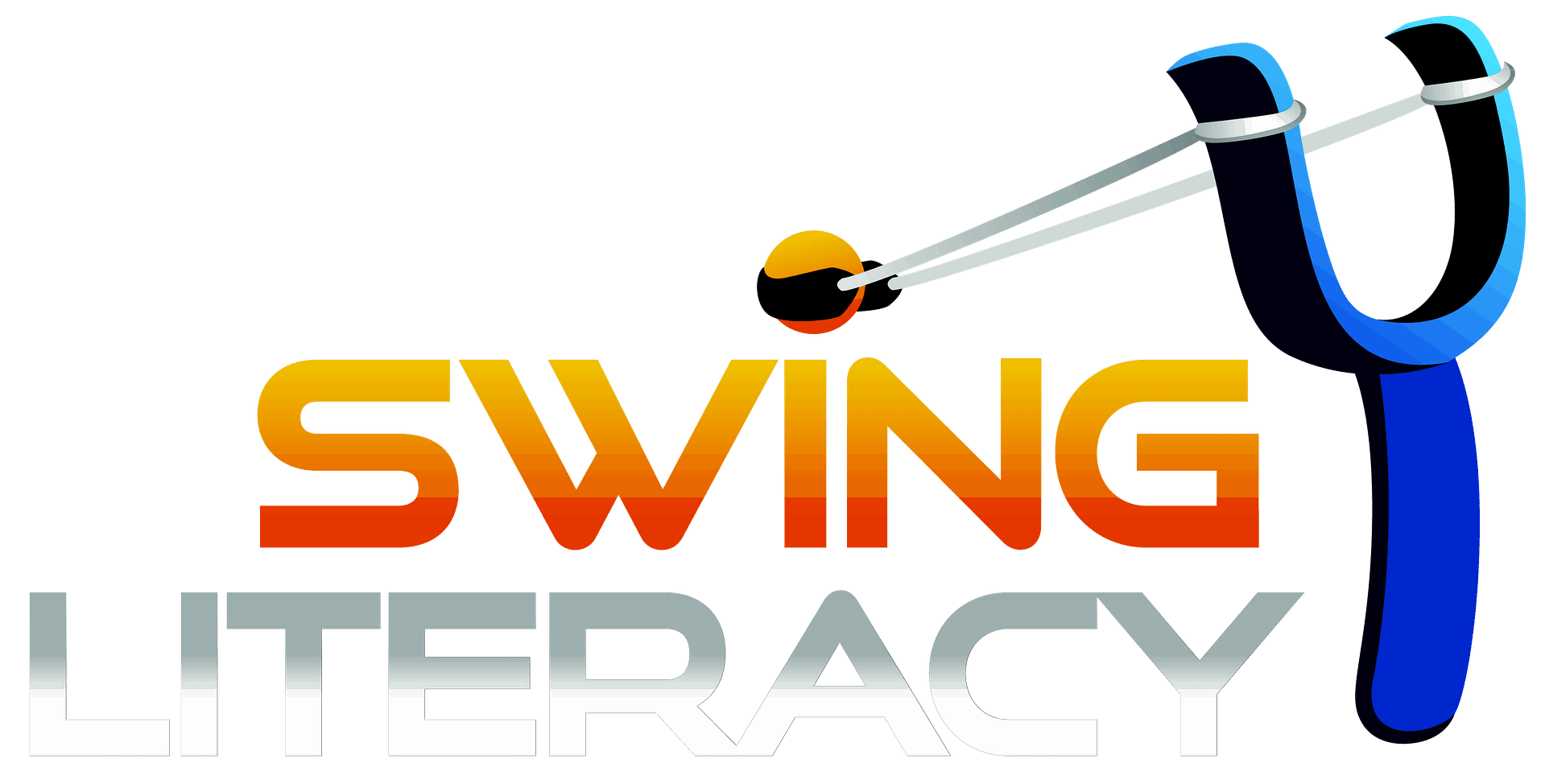

 Hey. You look a little stressed… a little adrift. Maybe it’s time we sat down and had a chat. Pull up a comfy chair, order your favourite hot beverage, and get cozy. Let’s get you feeling anchored.
Hey. You look a little stressed… a little adrift. Maybe it’s time we sat down and had a chat. Pull up a comfy chair, order your favourite hot beverage, and get cozy. Let’s get you feeling anchored. Imagine you are a diamond with several facets. Each facet aligns with a certain part of your life: You show your professional facet at work, your comedian facet with friends, and your romantic facet in your relationship. Just as it is inappropriate to use your romantic facet at work, it would also be dysfunctional to use your professional facet when relaxing with friends.
Imagine you are a diamond with several facets. Each facet aligns with a certain part of your life: You show your professional facet at work, your comedian facet with friends, and your romantic facet in your relationship. Just as it is inappropriate to use your romantic facet at work, it would also be dysfunctional to use your professional facet when relaxing with friends.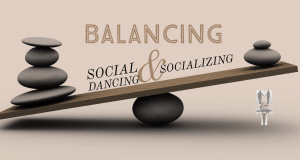 This sounds like something your parents taught you, but it is timeless advice. If your “friends” are bringing you down in any way, don’t be afraid to reassess your friend inventory and make some positive changes.
This sounds like something your parents taught you, but it is timeless advice. If your “friends” are bringing you down in any way, don’t be afraid to reassess your friend inventory and make some positive changes. Feeling isolated? Unsure what is expected of you? Carving out your niche? Notice the culture of the WCS: the clothing, the behaviour, the attitude, the code of conduct. Rather than making wild guesses about how to conduct yourself, pay attention to the environment you are in and what others are doing/saying/appearing. This does not mean you should always try to fit in! But being aware of cultural expectations is a crucial step in making an educated decision on how you want to be and how to belong.
Feeling isolated? Unsure what is expected of you? Carving out your niche? Notice the culture of the WCS: the clothing, the behaviour, the attitude, the code of conduct. Rather than making wild guesses about how to conduct yourself, pay attention to the environment you are in and what others are doing/saying/appearing. This does not mean you should always try to fit in! But being aware of cultural expectations is a crucial step in making an educated decision on how you want to be and how to belong.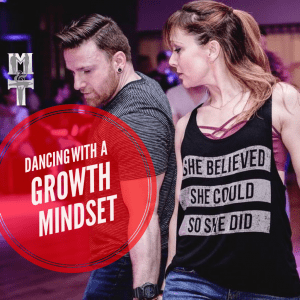 Self-reflection is a valuable form of feedback, but it only tells half of the story: you need feedback from an external source in order to clarify the impact you are having on those around you.
Self-reflection is a valuable form of feedback, but it only tells half of the story: you need feedback from an external source in order to clarify the impact you are having on those around you.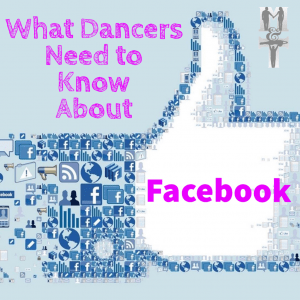 Everyone uses social media for different purposes. If you decide that you really want your Facebook and Instagram to be full of food/recipes and funny cat videos, that’s your perogative. But keep in mind that others will make up their own minds about you based on the content you share. It’s just a fact. So if you are trying to build/maintain/fix your reputation, consider what you share online, how, and with whom. Are the facets of yourself that you share online in alignment with the facet(s) you want to apply to the dance community?
Everyone uses social media for different purposes. If you decide that you really want your Facebook and Instagram to be full of food/recipes and funny cat videos, that’s your perogative. But keep in mind that others will make up their own minds about you based on the content you share. It’s just a fact. So if you are trying to build/maintain/fix your reputation, consider what you share online, how, and with whom. Are the facets of yourself that you share online in alignment with the facet(s) you want to apply to the dance community? This is a giant, glorious topic, and I encourage further study: here’s a great TED talk:
This is a giant, glorious topic, and I encourage further study: here’s a great TED talk:  If you compete, you are probably juggling the added stress of competition results. Remember that judges are judging only your dancing and only IN THE MOMENT, not your worth as a dancer in general or as a whole person.
If you compete, you are probably juggling the added stress of competition results. Remember that judges are judging only your dancing and only IN THE MOMENT, not your worth as a dancer in general or as a whole person. This is such a huge and vague topic, but deserves to be mentioned. You discover your boundaries by testing them, which can be an awkward process. You know your boundaries are being pushed when you feel uncomfortable.
This is such a huge and vague topic, but deserves to be mentioned. You discover your boundaries by testing them, which can be an awkward process. You know your boundaries are being pushed when you feel uncomfortable. Negative self-talk is like a slow, creeping cancer. It may seem insignificant at first but if you indulge and let it continue and dominate, it becomes a disease. No one is a saint, and even while you are genuinely doing your best, you are bound to make mistakes or have a lapse in judgement and feel guilty about it. That feeling is just a signal that you are human; you might have some cleaning up to do with certain people. But it shouldn’t be a permanent thing if you address it and manage it.
Negative self-talk is like a slow, creeping cancer. It may seem insignificant at first but if you indulge and let it continue and dominate, it becomes a disease. No one is a saint, and even while you are genuinely doing your best, you are bound to make mistakes or have a lapse in judgement and feel guilty about it. That feeling is just a signal that you are human; you might have some cleaning up to do with certain people. But it shouldn’t be a permanent thing if you address it and manage it.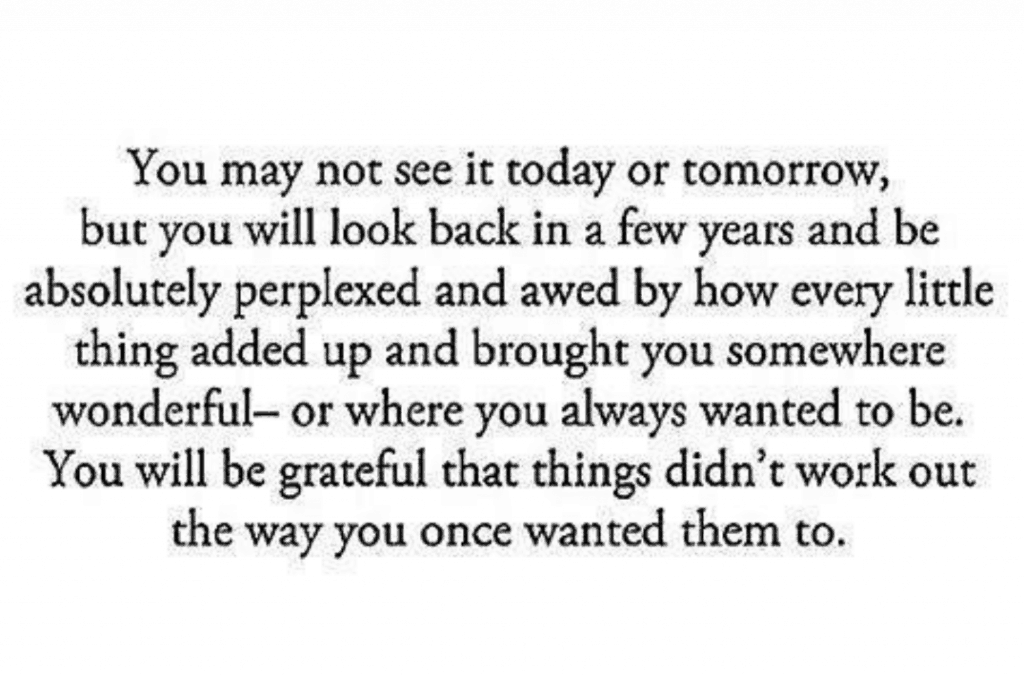 We all have made our share of bad decisions. You can’t un-pick the fruit, but you can grow more in its place. The best recovery from mistakes is owning up to them and making changes so that they don’t happen again. Not all mistakes need to be public. Best to get a mentor’s advice on how to manage PR if necessary.
We all have made our share of bad decisions. You can’t un-pick the fruit, but you can grow more in its place. The best recovery from mistakes is owning up to them and making changes so that they don’t happen again. Not all mistakes need to be public. Best to get a mentor’s advice on how to manage PR if necessary.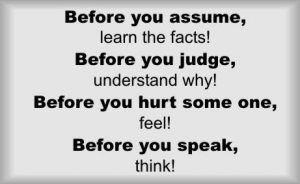 This is so hard! Don’t worry we know! But it is worth trying. Imagine if you took your words and wrote them down as a script for an actor to read. How would they sound? If they make you cringe, edit!!! Think about your actions from others’ perspectives. Your actions might seem fine to you because you know your internal reasons. But to others who don’t know, your actions might be grossly misinterpreted. This starts rumours, and people tend to judge based on others’ impressions and advice. You can’t control how others think, but you can control how you present yourself, which can go along way towards being understood and preventing misunderstanding. Here’s a glimpse into how your dance actions can be misinterpreted:
This is so hard! Don’t worry we know! But it is worth trying. Imagine if you took your words and wrote them down as a script for an actor to read. How would they sound? If they make you cringe, edit!!! Think about your actions from others’ perspectives. Your actions might seem fine to you because you know your internal reasons. But to others who don’t know, your actions might be grossly misinterpreted. This starts rumours, and people tend to judge based on others’ impressions and advice. You can’t control how others think, but you can control how you present yourself, which can go along way towards being understood and preventing misunderstanding. Here’s a glimpse into how your dance actions can be misinterpreted: 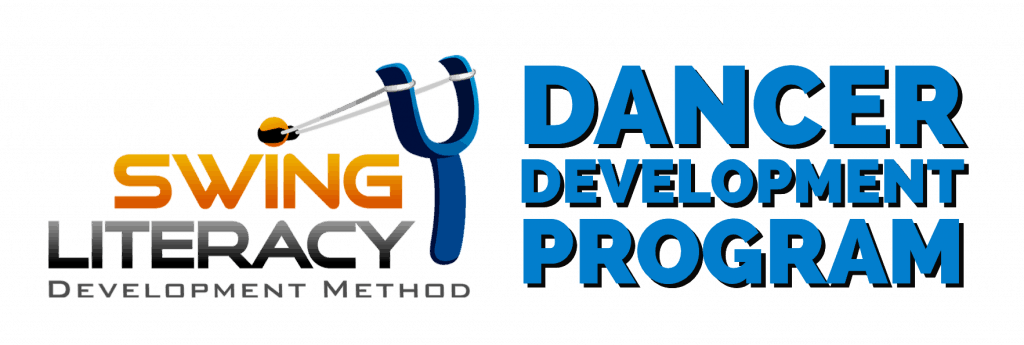
Wonderful and timely article Tessa. Thank you so much.
A well written, very thorough & insightful article ! Thank you !
This is a great article!
Very useful not only for WCS, but also for making our lives easier and mindful.
I love this sentense – Thank you Tessa!
“I personally firmly believe that mistakes are useful because they show us contrast between the way things are and the way we want things to be. ~~~ we need this contrast in order to “browse” for the things we really want. So be grateful for contrast in your life.”
Beautiful and true.
Spot On!!
is in alignment with the way I try to live every day
Thanks for so beautifully putting in words integrity to live by
One of my favorite 'spiritual' quotes is about keeping an opened mind:
"There is a principle which is a bar against all information, which is proof against all arguments, and which can not fail to keep a [hu]man in everlasting ignorance-that principle is contempt prior to investigation." – attributed to Herbert Spencer, a 19th century English theologian, philosopher, and scientist.
Timely and well done!
I loved the way you invited readers into your space to begin your talk.
With your experience and dedication, I believe you have become a
positive influence to many, many people around the world.
Thank you!